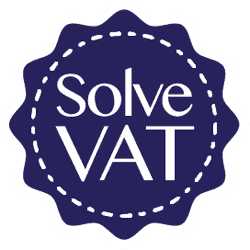How to Identify Potential VAT Fraud
Get in touch nowPotential VAT fraud
In the intricate web of business transactions, Value Added Tax (VAT) stands as both a cornerstone of government revenue and a source for potential VAT fraud. As businesses strive to maintain compliance and integrity, it’s essential to be vigilant against potential VAT fraud schemes. This article sheds light on the red flags to fight VAT fraud and how VAT consultants are revolutionising the fight against these deceptive practices.
The Landscape of potential VAT Fraud
Potential VAT fraud can manifest in various ways, from simple VAT evasion tactics by individual traders to sophisticated schemes like carousel fraud missing trader or gangmaster fraud. Whatever the method, the intent is the same: to exploit the VAT system for illicit gains. Missing trader fraud can occur in a number of business sectors and can lead to a VAT investigation of suppliers or customers.
6 Key Red Flags indicators to Watch Out For
1. Suspiciously Low Prices
Goods sold at prices significantly below market value can be a sign of a trader not accounting for VAT correctly. Such low prices might indicate an intention to avoid VAT or involvement in a broader potential VAT fraud scheme.
2. Rapid Succession of Transactions
Frequent, rapid transactions, especially with the same set of goods, might indicate ‘carousel’ movements, where goods are shuffled between traders to obscure the fraud’s trail.
3. Missing or Incomplete Documentation
Consistent absence of invoices, receipts, or other essential documentation can be a significant red flag. Proper record-keeping is fundamental to protect against potential VAT fraud.
4. New Businesses with High Volume Transactions
While new businesses can indeed achieve early success, a sudden high volume of transactions can sometimes suggest a ‘missing trader’ scenario.
5. Unusual Business Hours or Operations
If a business consistently operates outside of standard industry hours or has unusual operations patterns, it might be worth a closer look.
6. Frequent Changes in Business Details
Regular changes to business names, addresses, or bank details can indicate an attempt to obscure identities and activities.
Virtual Consultants: The Frontline in Detecting potential VAT Fraud
In this digital age, the role of virtual consultants in identifying and combatting VAT fraud is becoming increasingly crucial. Equipped with cutting-edge tools and analytics, they offer a fresh perspective on potential VAT fraud detection.
Advantages of Virtual Consultancy for Fraud Detection:
- Advanced Analytics: Using AI-driven tools, virtual consultants can sift through vast amounts of data, identifying patterns and anomalies indicative of fraud.
- Global Coverage: VAT fraud often crosses borders. Virtual consultants, unrestricted by geography, offer a comprehensive view, bridging the gaps between different jurisdictions.
- Real-time Response: The speed of virtual consultancy means that potential fraud can be flagged in real time, allowing for quicker interventions and solutions.
- Cost-Effective: The digital nature of virtual consultancy often means reduced overheads, translating to more affordable services without compromising on quality.
FAQ
Q: What should a business do upon spotting these red flags?
A: If a business suspects potential VAT fraud, it should seek VAT expert advice immediately. VAT consultants offer real-time guidance and can quickly assess the situation, providing actionable insights.
Q: Are all businesses at risk of potential VAT fraud?
A: While some sectors might be more susceptible due to the nature of their operations, all businesses should maintain vigilance. Fraudsters constantly evolve their tactics, making no industry entirely immune.
Q: How to stay updated about new potential tactics?
A: Regular training and workshops are essential. Engaging with virtual consultants can also ensure that businesses benefit from the latest technological advancements in the detection of VAT frauds.
Q: Can VAT consultants work in tandem with traditional consultants?
A: Absolutely. In many scenarios, a combination of VAT consultants and traditional consultancy offers a holistic approach, blending technological prowess with on-ground expertise.
Conclusion
The battle against potential VAT fraud is ongoing, requiring businesses to be ever-vigilant and adaptive. Recognising the red flags is the first step in ensuring that one’s business remains compliant and free from the taint of VAT fraud. VAT consultants, with their blend of technology and VAT expertise, are fast becoming invaluable allies in this endeavour. By staying informed and proactive, businesses can navigate the VAT landscape with confidence and integrity.
HMRC VAT general enquires can be found at https://www.gov.uk/government/organisations/hm-revenue-customs/contact/vat-enquiries
Contact
Alleged VAT frauds. Call one of our VAT experts on 0161 883 2120.

